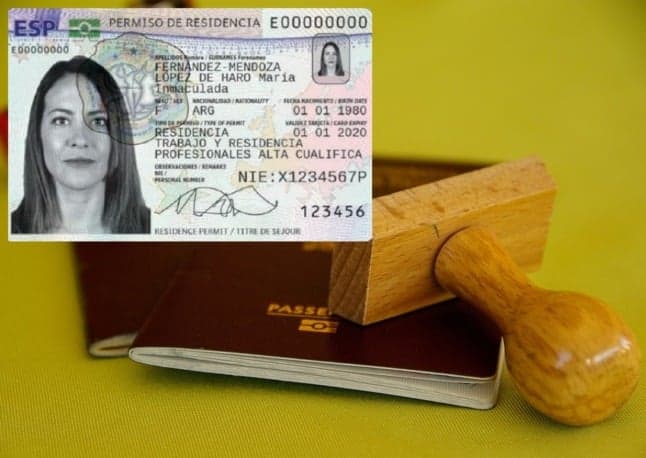Do I have to get a new Spanish residency card if I renew my passport?

A passport renewal often involves getting a new document with different numbers and details on it, but does that mean foreigners in Spain also have to get a new residency document as well every time?
If you’re an EU/EEA or Swiss citizen based in Spain, you no doubt have a green residency document, either an A4-sized sheet or a credit card-sized paper one, called the Certificado de Registro de Ciudadano de la Unión (Registration Certificate of an EU citizen).
If you’re a non-EU/EEA national, you will have a foreigner’s identity card or Tarjeta de Identidad de Extranjero (TIE), a biometric document with a photo of you and other information.
Some UK nationals may only have green residency documents because they were residing in Spain before July 2020, but they have been encouraged to exchange them for TIEs by Spanish and British authorities.
READ ALSO - Reader question: Does Spain’s TIE residency card always have an expiry date?
So do foreign residents from EU nations or third countries have to renew either of these residency documents whenever they get a new passport from their home country?
The answer is no. There are several circumstances in which Spanish residency documents should be renewed, but a change of passport is not one of them.
The reason for this is that neither the green residency documents for EU nationals nor the TIEs for third-country nationals contain the foreign residents’ passport numbers.
Instead, they have the NIE, the foreign identity number of the person (Número de Identidad de Extranjero), which never changes.
Both types of foreign identity documents do contain your nationality and address.
READ ALSO: Can I be a resident in Spain and the UK?
Crucially if a foreigner does change their address in Spain, they do have to update first their padrón (town hall registration) and then go to their extranjería office to apply for a new card after filling in a form and paying a fee. The process can also be carried out online.
You will have to show your passport and present copies so it’s important that it’s still valid when you do so, as is the case for any other reason for a residency renewal or update.
Other reasons for having to renew your residency document include changing personal details such as your surname or when the residency document expires (two months before and up to three months after).
Comments (1)
See Also
If you’re an EU/EEA or Swiss citizen based in Spain, you no doubt have a green residency document, either an A4-sized sheet or a credit card-sized paper one, called the Certificado de Registro de Ciudadano de la Unión (Registration Certificate of an EU citizen).
If you’re a non-EU/EEA national, you will have a foreigner’s identity card or Tarjeta de Identidad de Extranjero (TIE), a biometric document with a photo of you and other information.
Some UK nationals may only have green residency documents because they were residing in Spain before July 2020, but they have been encouraged to exchange them for TIEs by Spanish and British authorities.
READ ALSO - Reader question: Does Spain’s TIE residency card always have an expiry date?
So do foreign residents from EU nations or third countries have to renew either of these residency documents whenever they get a new passport from their home country?
The answer is no. There are several circumstances in which Spanish residency documents should be renewed, but a change of passport is not one of them.
The reason for this is that neither the green residency documents for EU nationals nor the TIEs for third-country nationals contain the foreign residents’ passport numbers.
Instead, they have the NIE, the foreign identity number of the person (Número de Identidad de Extranjero), which never changes.
Both types of foreign identity documents do contain your nationality and address.
READ ALSO: Can I be a resident in Spain and the UK?
Crucially if a foreigner does change their address in Spain, they do have to update first their padrón (town hall registration) and then go to their extranjería office to apply for a new card after filling in a form and paying a fee. The process can also be carried out online.
You will have to show your passport and present copies so it’s important that it’s still valid when you do so, as is the case for any other reason for a residency renewal or update.
Other reasons for having to renew your residency document include changing personal details such as your surname or when the residency document expires (two months before and up to three months after).
Join the conversation in our comments section below. Share your own views and experience and if you have a question or suggestion for our journalists then email us at [email protected].
Please keep comments civil, constructive and on topic – and make sure to read our terms of use before getting involved.
Please log in here to leave a comment.